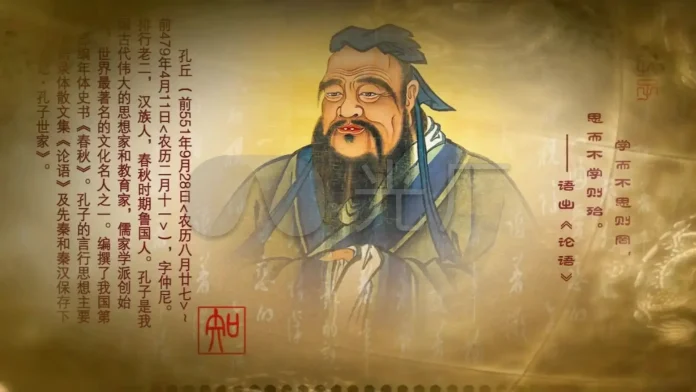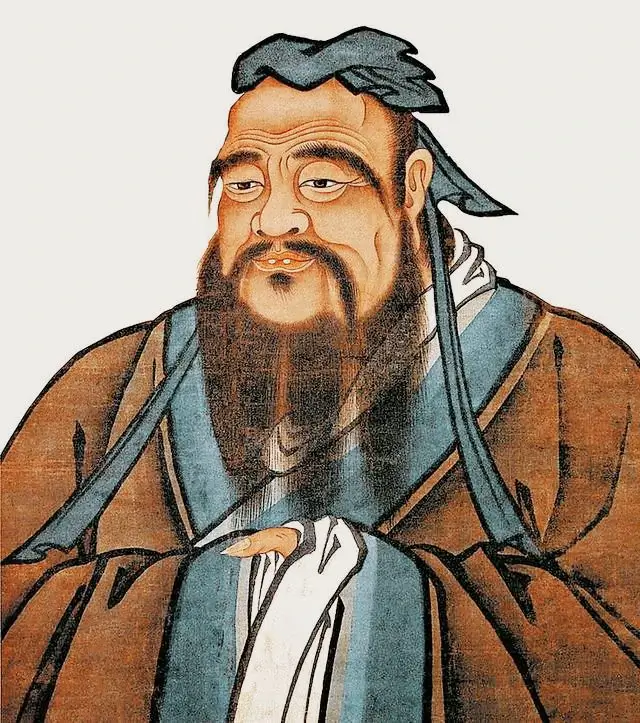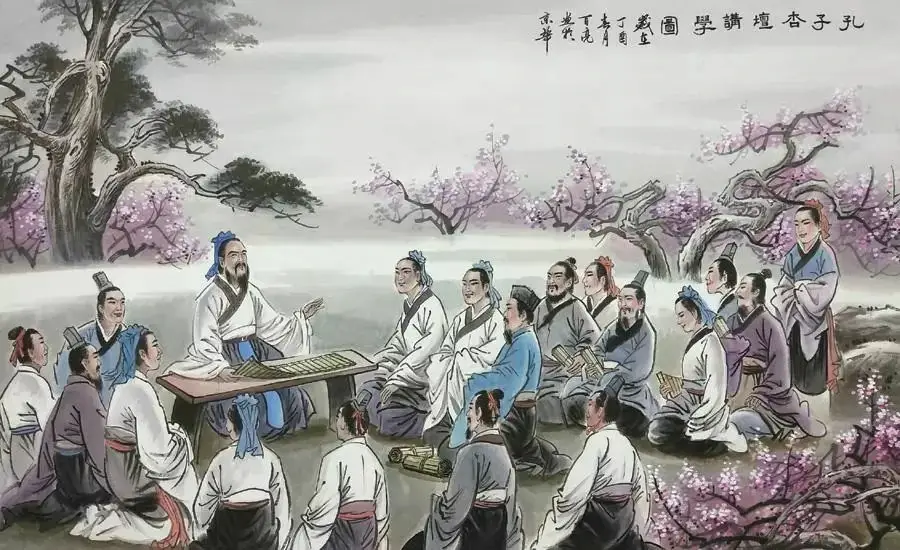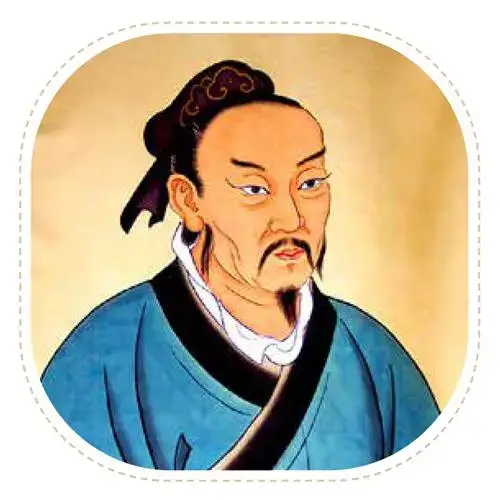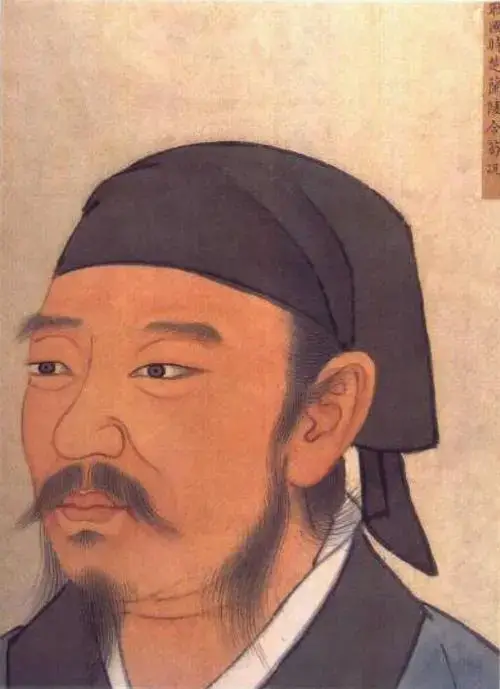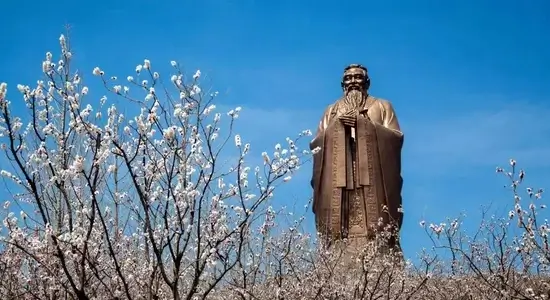Confucianism had been China’s dominant thought since the Han Dynasty, where the emperor decided to abandon all others thought and only appreciate Confucianism. Since then, China’s society, culture, literature, schooling, almost everything is run under the idea and guidance of Confucianism, forming the way that China developed into a talent-oriented social system, especially that everyone went job-hunting based on schooling and learning. Confucianism was founded by Confucius, a philosopher and teacher who lived around 500 BCE during the Zhou dynasty.
His original name was Kong Qiu and he was born in the state of Lu (Shandong province today). His father died when he was 3 years old, and he was raised by his mother in poverty, which also let him study ritual, poetry, history, music and philosophy from a young age, and later worked as a shepherd, clerk and book-keeper before becoming a renowned teacher.
Confucianism focuses on achieving social harmony by clearly defining roles and hierarchies within society. It built a philosophy of ethics and politics around the concept of ren (仁) or benevolence/humaneness and Ren manifests itself in the practice of li (礼) or rituals/propriety – norms of proper behavior. Outlined Five Constant Virtues – benevolence, righteousness, propriety, wisdom, trustworthiness, and Articulated Five Basic Relationships central to society – ruler/subject, father/son, husband/wife, older brother/younger brother, friend/friend, together form the benignant order of the society. Believed by setting a moral example, rulers can transform society rather than using laws and force, and filial piety or respect for parents and elders is foundational to the family and by extension, society.
Teachings compiled posthumously by disciples in the Analects, which serves as the key text of Confucianism. Confucius had around 3000 disciples from different backgrounds, 72 of whom were major masters of Confucian thought. As long as the person is a real student longing for knowledege, Confucius would teaching him/her in the proper way based on his/her situation. Teachings spread by disciples into broader Chinese society and government, and later disciples like Mencius (孟子) and Xunzi (荀子) amplified and developed Confucian theories.
Confucius left a magnificent legacy to Chinese society and history, and still played a major role in today’s Chinese education and teaching disciplines. He had profound influence on societal organization and moral education in China for over 2000 years, and build up the core part of the Chinese imperial examination system used for civil service recruitment. He dominated formal education and elite culture, as taught by the literati scholarly class, and saw a revival in contemporary China as a unifying cultural framework for society amid rapid changes, placing fundamental emphasis on hierarchy, order, consensus and harmony continues to run deep in Chinese worldview.
By formulating an ethical doctrine centered around harmonious social roles and humanity, Confucius shaped philosophy, education and governance in China for millennia. His teachings remain culturally significant today, and Confucianism’s hierarchical ethics and emphasis on harmony, duty and ritual continue to permeate Chinese social relations and worldview.



